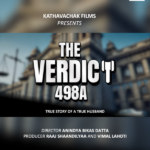Former Chief Justice of the Orissa High Court, Justice S. Muralidhar, together with global experts, discussed the crisis of judicial independence in India and the United States at an event hosted on October 21, 2025, in New York City, by the International Human Rights Committee of the New York City Bar Association, proposing strategies for reform and greater accountability.
The discussion, titled “Judicial Independence at Risk: Reflections from the U.S. and India,” brought together leading voices in law and human rights, including Margaret Satterthwaite, UN Special Rapporteur on the Independence of Judges and Lawyers; Shira A. Scheindlin, Retired U.S. District Judge, Southern District of New York; and Samah Sisay, Staff Attorney, Center for Constitutional Rights. The panel was moderated by Gunjan Singh, a human rights lawyer.
Justice Muralidhar, in his opening remarks, outlined the factors deepening the crisis of judicial independence in India, naming executive interference, weak institutional accountability, the absence of critical voices from the Bar, and inadequate infrastructure. He underscored the essential role of lawyers and bar associations in defending judicial integrity, recalling the case involving former Chief Justice Ranjan Gogoi, who presided over a matter concerning allegations of sexual harassment against himself.
Expressing concern that the Bar remained silent in the face of such grave misconduct, Justice Muralidhar added that when Ranjan Gogoi was nominated to the Rajya Sabha, “the Bar Council of India through its Chairman put out a statement extolling it.”
He further emphasized that an independent Bar is indispensable to an independent Bench, stating, “Independence of Bar will come from lawyers believing in constitutional values and human rights.” Justice Muralidhar also highlighted the need to nurture critical and independent thinking within law schools amid growing attacks on academic freedom in India, noting that a compromised educational environment ultimately weakens the judiciary. Justice Muralidhar pointed to India’s declining position in the World Justice Project’s Rule of Law Index—ranking 83rd out of 143 countries—and urged cross-regional dialogue among judges, lawyers, and scholars to strengthen rule-of-law institutions globally.
UN Special Rapporteur Margaret Satterthwaite, who earlier this year sent a formal communication to the Government of India regarding concerns over judicial independence, drew parallels between India’s challenges and those seen elsewhere.
On the role of judges and lawyers, she cited the example of Poland—where thousands of judges, in their robes, along with lawyers, marched in the streets to protest reforms undermining judicial independence—and said, “I think that was so powerful to see because of its unusual nature, and because it did take this brave step for judges to come out and do that.”
Referring to the global trend of attacks on judicial independence and the importance of transnational dialogue, she added, “I think it is really important that we listen to people in various countries that may have similar dynamics but different contexts, and I think we can learn a lot from them. I also think that solidarity across countries is really important.”
Satterthwaite also highlighted the role of bar associations in defending judicial independence and warned against growing attempts by the executive to divide the bar. She said, “I think it’s really important that we don’t fall for that divide and conquer attempts that happen by any powerful autocratic government.” She called for greater global solidarity among bar associations and lawyers’ groups to defend the rule of law.
In her remarks, Judge Shira Scheindlin discussed growing concerns over judicial independence in the United States, including political attacks on judges and controversial judicial appointments. Highlighting the severity of the crisis within the U.S., and referring to the unprecedented response from sitting judges against attacks on the judiciary, she noted, “what we are seeing for the first time is that sitting judges anonymously have begun to speak up.”
She emphasized the need for collective advocacy and said, “We will speak out when judges are attacked inappropriately.”
On the role of lawyers in defending judicial independence, she added that bar associations must “speak out in defense of judges when they are attacked for their opinions.”
Staff Attorney at the Center for Constitutional Rights, Samah Sisay, discussed increasing attacks on lawyers and law firms engaged in civil and political rights work and their impact on judicial independence. Referring to the case of Mahmoud Khalil, she spoke about challenges such as doxing faced by lawyers handling critical cases and said, “we had to go through various security training to scrub from the internet our personal information and family information.”
Referring to the case of Badar Suri, an Indian national whom she defended in court, she described the fear of political retaliation among lawyers and recounted how, when she reached out to an Indian lawyer regarding this case and requested an affidavit, they said, “they can’t do that.”
She further highlighted growing attacks on the funding of legal organizations engaged in critical work. She added, “Now what we are seeing is legal organizations are being listed in these ‘reports’ that are being put together by these research institutes that are just again arms of the political branch.”






